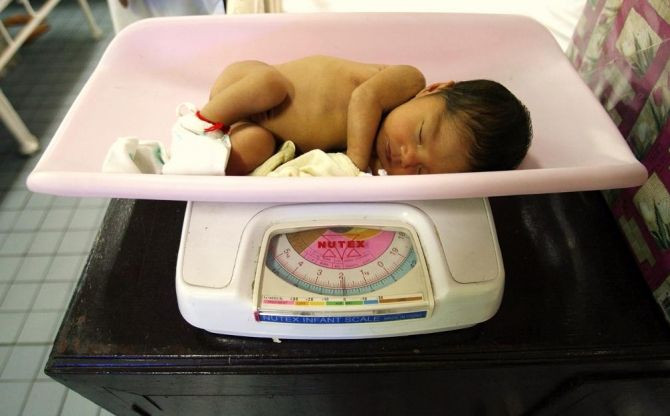Scientists Link Higher Birth Weight to Maternal Grandmother Gene

A gene variation passed down from the maternal grandmother could contribute more than a third of a pound to a newborn’s birth weight, according to findings from a new study.
Scientists believe that the gene acts as a growth suppressor to reduce birth weight.
Researchers examined the PHLDA2 gene in 9,433 DNA samples from mothers and babies in three different studies, and found that the maternal inheritance of a gene variant called RS1 appeared to change the way in which the suppressor gene functioned leading to heavier newborns.
Investigators found that if the RS1 gene variant passed down from the mother can add 93 grams or a little more than a fifth of a pound to birth weight, or 155 grams, more than a third of a pound, if the variant was passed down from the maternal grandmother.
Researchers added that the maternal grandmother influence on birth weight, up to 155 grams, was a “similar magnitude to the reduction in birth weight caused by maternal smoking”.
"The gene is already known to have a profound effect on birth weight by acting as a growth suppressor," researcher Professor Gudrun Moore of University College London told BBC News. "We have found a genetic variant of PHLDA2 that when inherited from the mother, causes the baby to be 93 grams bigger on average, or even 155 grams bigger on average, if inherited successively from the mother's mother."
Investigators found the RS1 variation in about 13 percent of the individuals studied, and 87 percent possessing the RS2 variation which leads to lower birth weights.
Researchers are still unsure why there is a significant correlation between birth weight and expression of the maternal PHLDA2 gene, but they suspect that the more common RS2 gene variation is only found in humans, and researchers suggest that the variant has evolved to produce smaller infants as a protective effect to enhance the mother’s survival during childbirth.
Researchers from the latest study said that birth weight is an important indicator of both infant and adult heath, and intrauterine growth restriction, which refers to the poor growth of a baby while in the mother’s womb during pregnancy that typically leads to the baby weight less than 90 percent of other babies at the same gestational age, is a leading cause of perinatal morbidity and death and adult disease.
The only copy of the PHLDA2 gene that is active is the one inherited from the mother, while the copy inherited from the father is “silenced,” an example of gene results from molecular processes around the DNA called epigenetics.
"Dad's lack of involvement in evolutionary terms may stem from his own survival not being at stake and he can continue to reproduce with other females," Moore said to BBC.
"Although this study looks only at birth weight as an outcome, it is possible that this genetic variant may have longer-term health consequences,” Dr. Caroline Relton of Newcastle University said, according to BBC. "Indeed the long-term health consequences associated with extremes of birth weight might be due in part to this and other contributory genetic factors."
The findings are published in the American Journal of Human Genetics.
Published by Medicaldaily.com



























